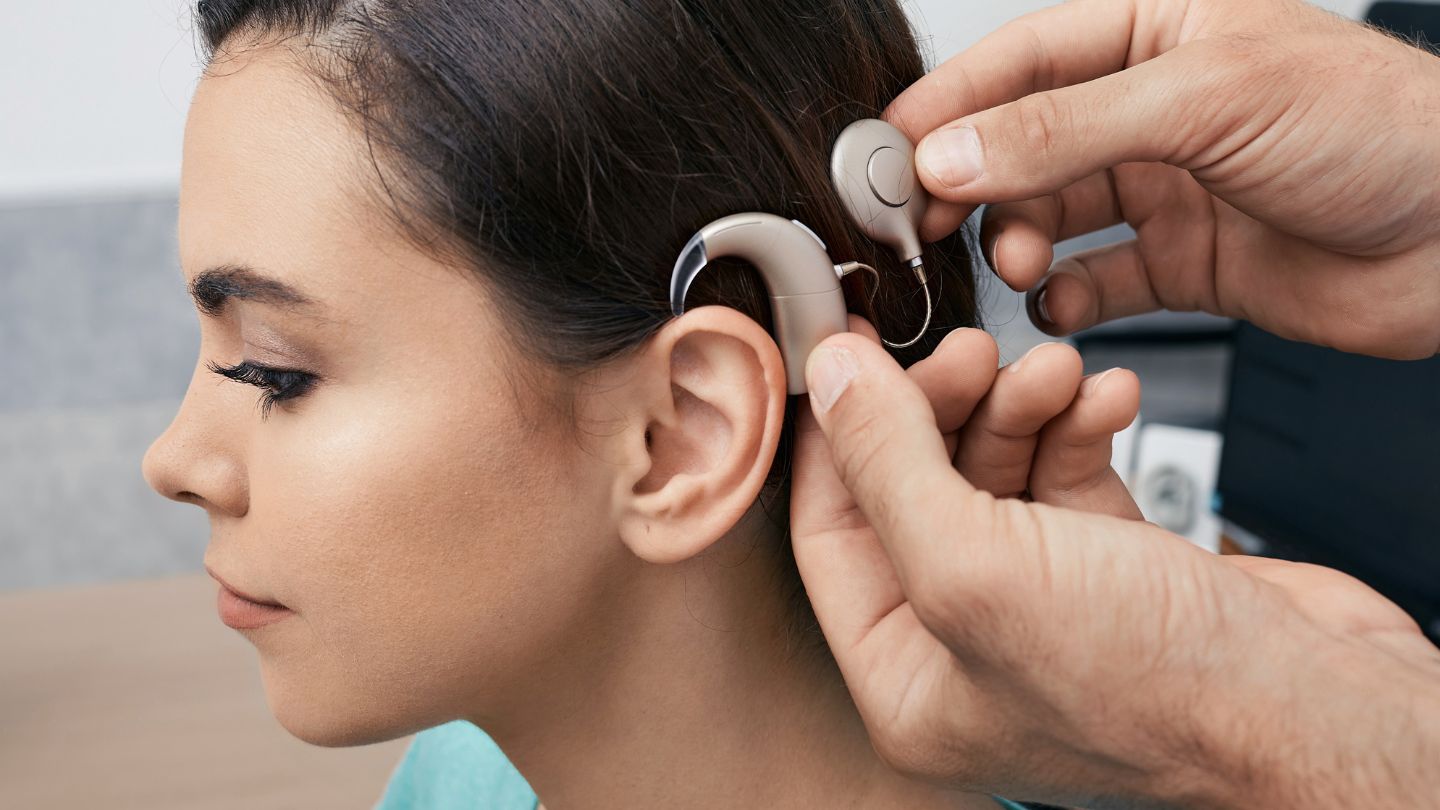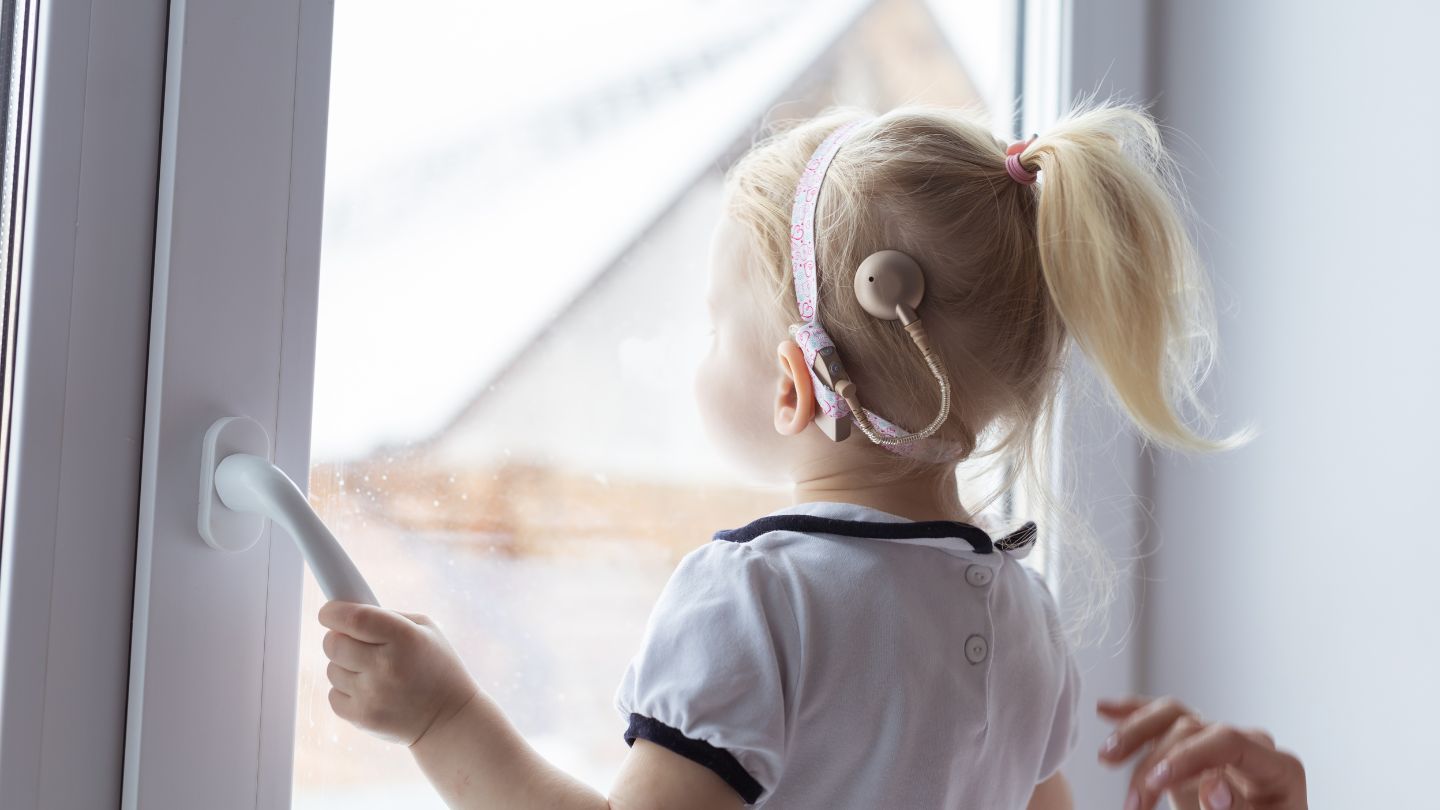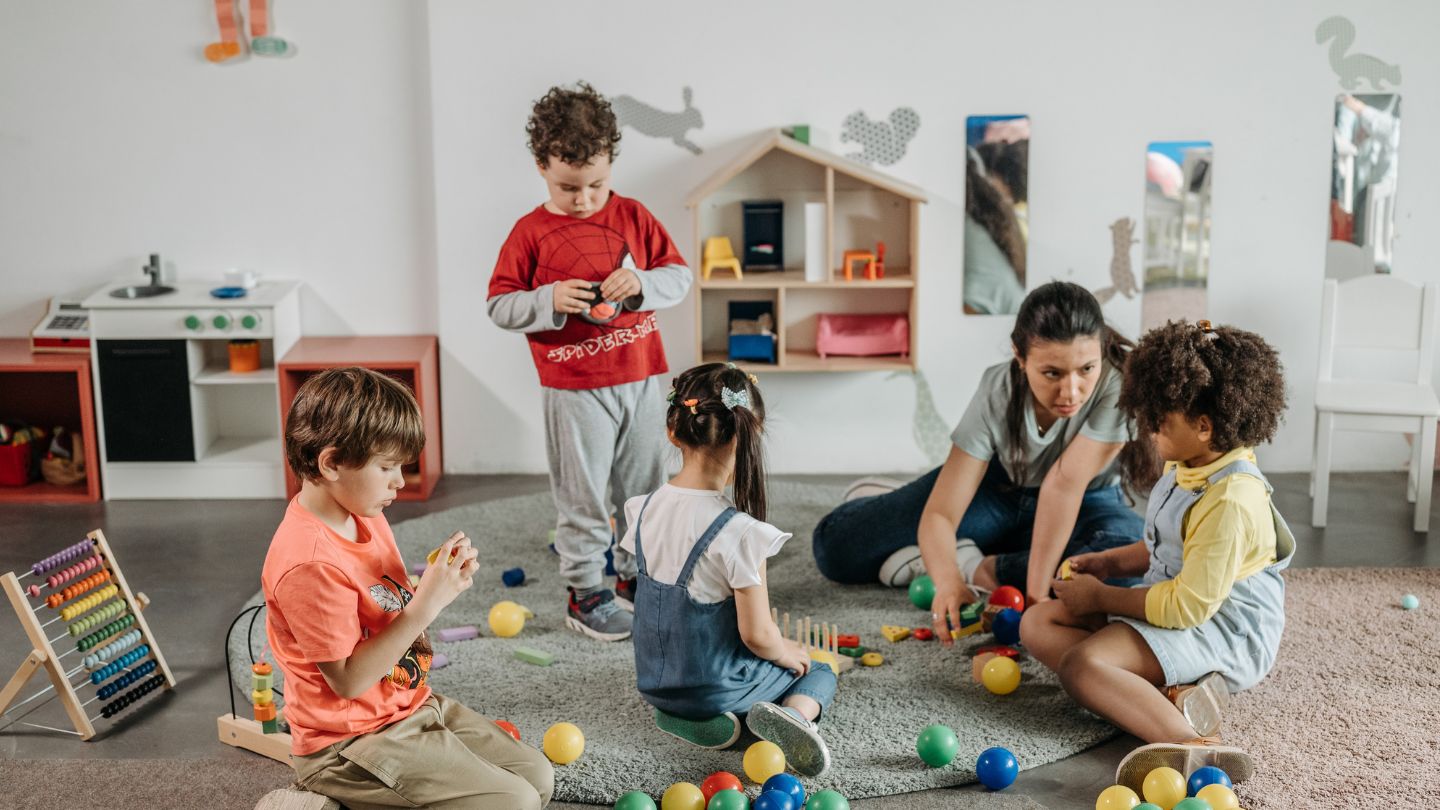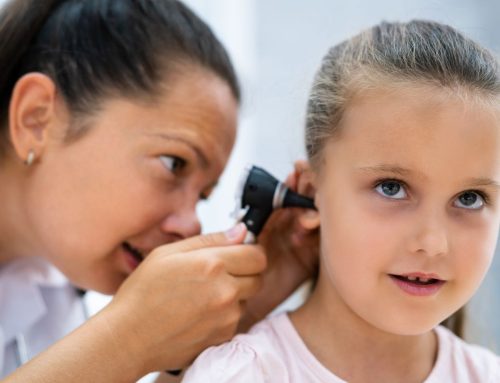Cochlear implants can significantly enhance social skills in children by improving their ability to hear and understand speech. These devices stimulate the auditory nerve, allowing children with hearing loss to perceive a wide range of sounds. This improved auditory input helps children develop better language and communication skills, which are essential for engaging in social interactions. In this blog, we will explore how cochlear implants can improve social skills in children, from language acquisition to confidence building and inclusion in group activities.
Key Takeaways
- Cochlear implants significantly enhance auditory awareness in children, promoting a better understanding of speech and facilitating social interactions.
- Early intervention and active family involvement play a crucial role in maximizing the language development and social skills of children with cochlear implants.
- The timing of cochlear implantation is critical; earlier implantation leads to improved communication abilities and social engagement compared to later interventions.
Understanding Cochlear Implants: A Foundation for Social Skills
Cochlear implants serve as an aid for individuals, especially children who experience severe to profound sensory hearing loss. These devices differ from conventional hearing aids by directly stimulating the auditory nerve rather than merely amplifying sound, offering a superior option for those with significant hearing impairment. By enabling access to a wider spectrum of sounds, cochlear implants considerably improve the ability of children to comprehend spoken language and participate in social exchanges.
Gaining auditory awareness through these implants lays the foundation for developing essential social skills. Cochlear implants open up exposure to diverse sounds that are integral in grasping nuances within spoken language and are critical for effective interaction. When bilateral cochlear implants are used—implanting devices in both ears—they amplify spatial perception within sonic environments, which bolsters communication abilities and facilitates social participation.
The acquisition of better listening capabilities allows implanted children enhanced opportunities for engaging with others through speech understanding and response. This elevation in their capacity to hear fosters advancements in spoken language skill development, thus bringing their communicative competencies closer to peers with normal hearing levels. Such improvements play an invaluable role when it comes time for these young individuals to engage socially and form connections with fellow youths as well as adults.
Enhancing Communication and Language Development
Cochlear implants are crucial for fostering the development of spoken language abilities in children, which is key to successful communication and growth in spoken language proficiency. When children receive these implants early on, they have the potential to reach a level of language expertise that is on par with their peers who can hear. This improves their ability to engage socially.
Initiating cochlear implantation during early childhood significantly enhances deaf children’s prospects for cognitive and communicative development. These devices provide access to a broader spectrum of sounds, which elevates auditory experiences and aids them in understanding speech better. Enhanced comprehension promotes strong communication skills vital for engaging effectively within social contexts.
The environment provided by family interactions greatly influences how children with cochlear implants acquire language competencies. Children thrive when their families actively participate in nurturing both auditory perception and linguistic capabilities. Such engagement has been shown to positively affect not only communications but also contribute favorably towards cognitive advancement through improved executive function outcomes associated with supportive family involvement.
Interacting regularly within familiar social circles presents invaluable opportunities for those with cardiac implants to refine their listening aptitudes amidst authentic scenarios—boosting not just hearing prowess but confidence amongst communal gatherings, too—which sequentially cultivates more positive societal exchanges, leading ultimately toward augmented participation across various platforms of interpersonal interaction.
Boosting Confidence and Self-Esteem
Cochlear implants significantly improve the ability of children to engage in conversations and group interactions, thus bolstering their social confidence. This enhanced communication enables them to establish strong connections with both peers and adults, feeling more integrated and appreciated within various groups. Such developments are beneficial for self-esteem growth, particularly within educational spheres where better communication contributes to increased participation and academic achievements.
For children experiencing hearing loss, the capability to communicate proficiently is a key factor in mitigating feelings of loneliness and developing nourishing relationships that support emotional health. Those who can adeptly manage their attention typically exhibit elevated levels of self-regard. The positive impact cochlear implants have on fostering social interaction skills underscores their role not only in communication but also in cognitive development.
Participating comfortably in leisure pursuits owing to cochlear implants creates an inclusive atmosphere for these children during recreational times. Initiatives focused on early intervention are pivotal. They lay the groundwork for making friends easily and thriving academically among mainstream peers—all contributing factors toward enhancing life satisfaction. It has been noted that higher self-esteem tends to coincide with reduced symptoms of depression, highlighting how crucial it is to address hearing impairment as soon as possible.
Promoting Inclusion in Group Activities
Children who have hearing loss and utilize cochlear implants often experience a heightened sense of self-worth when compared to children with normal hearing. The capacity for auditory perception allows them to engage more actively in collective activities, which cultivates feelings of acceptance and community integration. This involvement is essential for bolstering their confidence and improving their general well-being.
The implementation of timely interventions combined with fitting support structures plays an instrumental role in facilitating group inclusion for these individuals. Swift action against hearing impairment paves the way for vital social interaction capabilities development—skills imperative not only to prosper socially but also to advance other life aspects significantly, thereby enhancing overall life quality. Active measures taken towards addressing such impairments can amplify this process even further.
Early Intervention and Its Impact on Social Skills
Intervening at an early stage is critical for the development of vital language abilities and social competencies. When cochlear implants are provided to children during their formative years, they can acquire speech more rapidly, attaining a level of linguistic proficiency akin to peers with normal hearing. Such timely action equips them with essential capabilities for engaging in social engagements and forging deep connections.
The Individuals with Disabilities Education Act (IDEA) champions programs aimed at early intervention from birth until three years old, emphasizing the significance of confronting hearing loss promptly. Notably, superior language skills have been observed in children who received cochlear implants by six months compared to those whose implantation occurred at two years old. The advantages conferred by this prompt action extend well into later life. These individuals are able to integrate into mainstream educational settings and excel academically.
Timing plays a pivotal role in determining how successful cochlear implantation will be—acting quickly not only boosts academic performance but also enhances interactions within society and overall life quality. In cases involving children with autism spectrum disorder, introducing cochlear implants without delay has demonstrated encouraging potential benefits that underscore urgent attention toward such interventions.
The Role of Therapy and Support Services
Continued care and rehabilitation play a pivotal role in optimizing the performance of cochlear implants. Initiating treatment for hearing loss at an early stage is imperative to stimulate brain development, which is crucial for acquiring speech, language proficiency, and social interaction abilities. Healthcare teams are instrumental in offering emotional and psychological guidance as children transition to utilizing cochlear implants so that both the children and their families experience adequate support throughout this period.
The involvement of family members is paramount in determining the successful results of deaf children receiving cochlear implants. Participating in group activities allows these children to pick up on social cues by watching their peers interact, aiding them in developing vital communication skills necessary for effective interpersonal engagement.
Providing dedicated services plays a critical role during the adjustment phase faced by these young individuals with hearing impairments. By devising personalized care strategies coupled with regular follow-ups, healthcare professionals can meet each child’s specific needs—assuring optimal outcomes from their auditory devices (cochlear implants).
Choosing the Right Time for Cochlear Implantation
The timing of a cochlear implant for a child can have profound effects on the development of their language skills and social abilities. Studies indicate that receiving an implant early in life, typically within the initial few years, leads to optimal outcomes for children. There is a clear correlation between this timely intervention and enhanced ability to perceive speech sounds, which lays down the foundation for thriving social exchanges.
Determining when to proceed with pediatric cochlear implantation involves assessing multiple factors, such as how old the child is, the degree of hearing loss they are experiencing, and whether or not the family feels prepared for such a step. Engaging with specialists in pediatric otolaryngology allows families to navigate these decisions effectively by providing them with critical insights into ideal timings for undergoing cochlear implantation.
Children who get implanted at an earlier age tend to stand better chances at acquiring language competencies and engaging socially in ways similar to children without hearing impairments. Being equipped with an implant from an early stage affords them valuable opportunities to cultivate communication proficiency as well as foster active participation in various forms of social interaction.
The Importance of Family Involvement
The involvement of families plays a pivotal role in the successful cochlear implant and the enhancement of social abilities among children. Essential emotional support from family members and friends bolsters confidence in those who receive cochlear implants as they interact socially. Active participation by family members can increase the efficacy of hearing therapies through regular practice and involvement.
Cochlear implant user support groups offer indispensable advice, along with an empathetic grasp of daily communicational obstacles. These collectives are capable of equipping families with actionable guidance and moral reinforcement, aiding them to collectively traverse the path set by cochlear implantation.
A familial atmosphere replete with an emphasis on accomplishment has been shown to markedly improve outcomes associated with cochlear implants. Supportive engagement from relatives throughout the early stages following surgery can elevate commitment to therapeutic rehabilitation programs, leading to superior long-term results for both youngsters equipped with such devices and their parents.
Wrapping Up
Cochlear implants have an incredible ability to transform the lives of children with hearing loss, enabling them to connect with their peers and develop vital social skills. By improving communication abilities, these devices pave the way for emotional growth, confidence, and meaningful relationships. The positive impact of enhanced hearing extends beyond social interactions, boosting a child’s independence and overall quality of life.
At Pediatric Ear Nose and Throat of Atlanta, P.C., we specialize in providing advanced care for children who can benefit from cochlear implants. If you’re searching for trusted expertise in cochlear implants for children in Atlanta, Alpharetta, Duluth, or Marietta, our team is here to support your family every step of the way. With a compassionate approach and a focus on innovative treatments, we’re dedicated to helping your child thrive in every aspect of their life. Trust us to be your partner in unlocking the world of sound for your child.
Frequently Asked Questions
How do cochlear implants differ from traditional hearing aids?
Cochlear implants are designed to directly activate the auditory nerve, providing a superior option for those with profound hearing loss compared to traditional hearing aids that only increase sound volume. As such, these implants stand out as a more suitable choice for people experiencing severe difficulties in hearing.
What is the importance of early intervention in cochlear implantation?
Early intervention in cochlear implantation is vital as it establishes the groundwork for critical language and social skills, ultimately resulting in better long-term outcomes and enhanced social engagement.
How can family involvement enhance the success of cochlear implantation?
The success of cochlear implantation is greatly improved when families actively participate by encouraging consistent hearing therapy practice and providing essential emotional backing.
Such joint participation can culminate in more favorable advancements in the patient’s auditory development.
What are the benefits of choosing the right time for cochlear implantation?
Choosing the best time to perform a cochlear implant, especially during the initial years of a child’s life, greatly improves results in terms of recognizing speech and acquiring social abilities. This enables children with implants to cultivate language skills on par with those who have normal hearing.
The importance of this timing cannot be overstated to ensure that the intervention has maximum positive impact.












